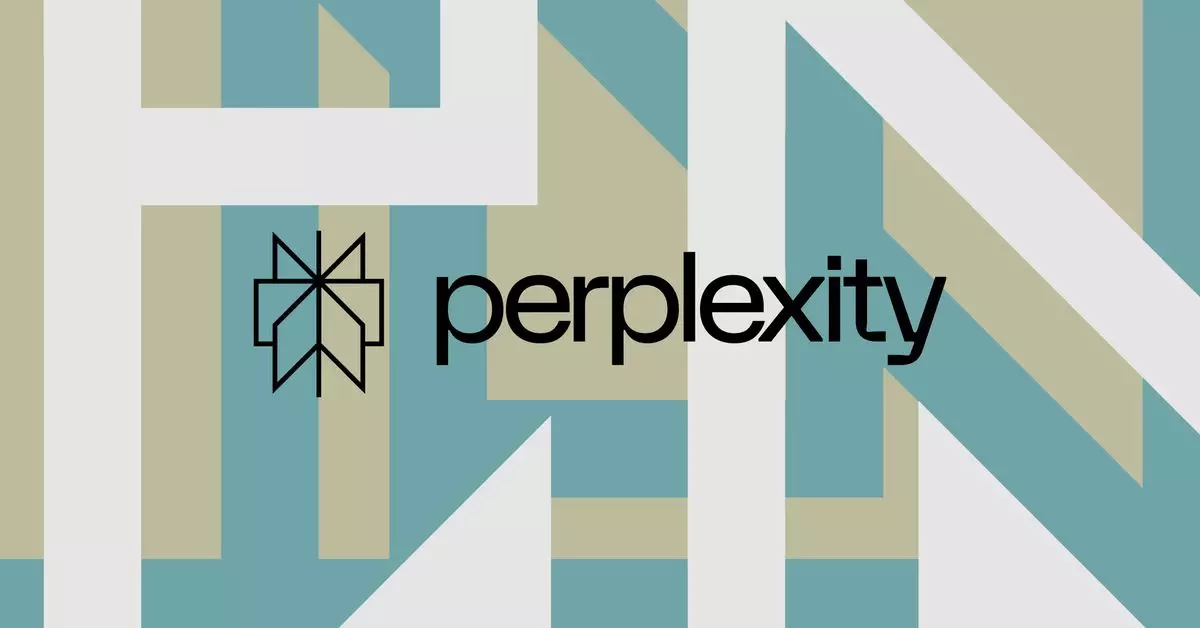The integration of artificial intelligence into everyday technology has established a new frontier in how we interact with information. Companies like Perplexity, which has developed an AI-driven search engine, find themselves at the crossroads of innovation and legal scrutiny. Recently, Perplexity became embroiled in a legal dispute with News Corp—owner of notable publications such as the New York Post and The Wall Street Journal—over allegations of copyright infringement. The core of the conflict lies in accusations that Perplexity has extracted and utilized content from these publications without appropriate permissions, raising important questions about the ownership of information and the ethical implications of AI technology.
News Corp’s lawsuit alleges that Perplexity effectively “copies on a massive scale,” positioning the AI startup as a threat to journalistic integrity and the economic viability of traditional news organizations. In a world where consumers are increasingly reliant on digital platforms for information, the potential for AI applications to unintentionally infringe upon copyright laws raises alarm bells for content creators who depend on their original work for revenue and recognition.
In response, Perplexity has firmly defended itself, arguing that the crux of News Corp’s claim is not rooted in lawful copyright considerations but rather in a desire for exclusive control over publicly reported facts. Perplexity contends that News Corp and similar organizations prefer a system in which factual information is monopolized, restricting citizen engagement and communal access to knowledge. This position is contentious, as it touches on the larger debate about the balance between proprietary rights and the right to access information, a debate that has become increasingly relevant in the digital age.
At the heart of this legal tussle lies the broader ethical implications of AI technology, specifically the practice known as “scraping.” This practice allows AI systems to gather large amounts of data from various sources, ostensibly to improve search functionalities and deliver more accurate results to users. However, the question arises: when does data gathering cross the line from being a beneficial tool into being a form of intellectual property theft?
Perplexity argues that the lawsuit is reflective of a growing “adversarial posture” between media entities and technology firms—a narrative that has been observed repeatedly in recent years. The startup emphasizes that their intentions are not malicious; rather, they aim to innovate and enrich user experience through technology. Nonetheless, without a clear legal framework addressing AI interactions with copyrighted material, companies like Perplexity find themselves navigating murky waters fraught with potential liabilities.
One of the critical points raised by Perplexity in its defense is the distinction between facts themselves and how those facts are expressed. The legal precedent indicates that while facts are in the public domain and cannot be owned, the unique expressions through which those facts are conveyed are protected under copyright law. This differentiation is vital for understanding the boundaries within which AI tools like Perplexity must operate.
In this regard, Forbes has also alleged similar practices by Perplexity, claiming that the startup has presented “eerily similar wording” to its articles, as well as fragments that are directly lifted from its content. This further complicates the debate, as it presents a case for the potential direct harm that AI scraping can inflict on original content creators.
As the technology landscape evolves and AI continues to become an increasingly integral part of our digital experience, the approach of organizations toward safeguarding intellectual property may need reevaluation. Instead of adopting an antagonistic stance toward tech companies, media organizations could explore avenues for collaboration, creating partnerships that benefit both sectors. For instance, revenue-sharing agreements, as suggested by Perplexity, could pave the way for a more symbiotic relationship.
The unfolding dispute between Perplexity and News Corp encapsulates the broader challenges confronting the intersection of technology and intellectual property rights in the AI era. As companies innovate, it is imperative that they navigate the complex legal and ethical frameworks surrounding their operations, ensuring that creativity is preserved and that the rights of original content creators are respected. The outcome of such legal battles could very well dictate the future landscape of information sharing and the responsible use of AI technology.


Leave a Reply